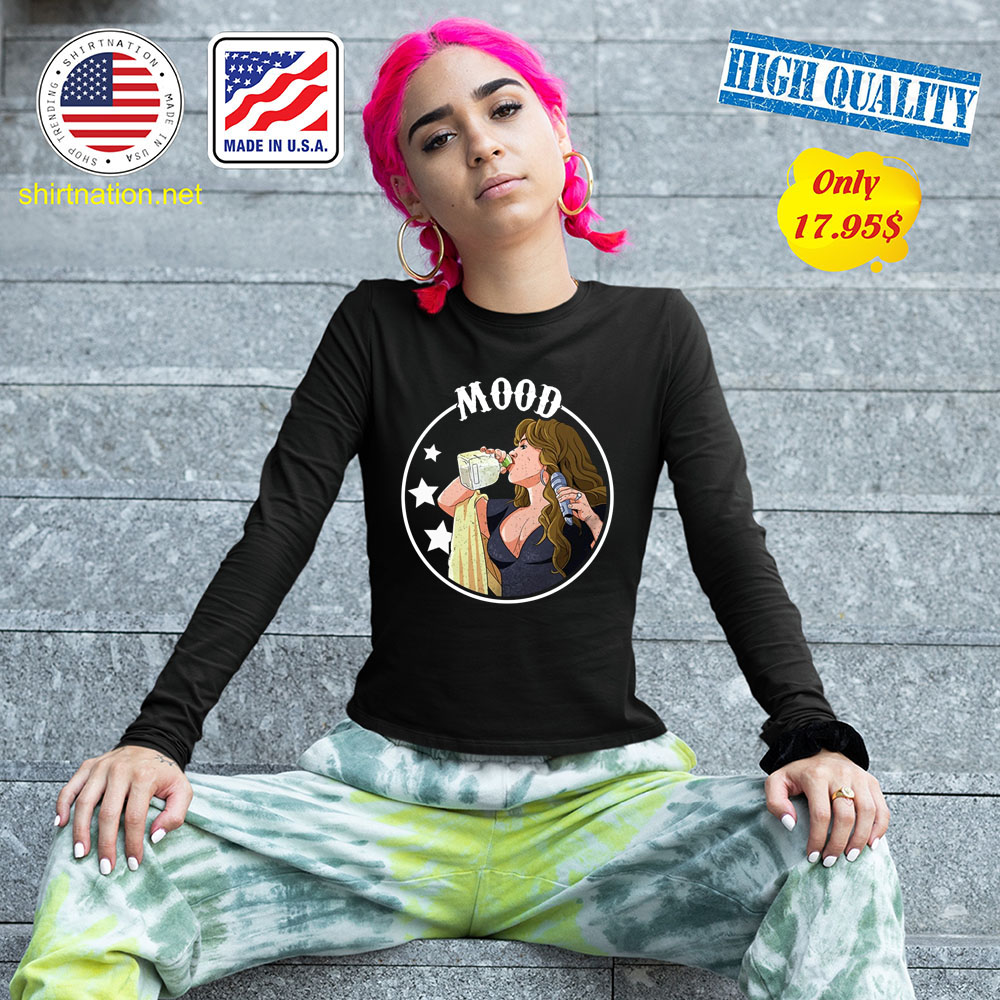Jenni Rivera Mood Shirt
The Physiology of AffectOur emotions are determined in part by responses of the sympathetic nervous system (SNS)—the division of the autonomic nervous system that is involved in preparing the body to respond to threats by activating the organs and the glands in the endocrine system. The SNS works in opposition to the parasympathetic nervous system (PNS), the division of the autonomic nervous system that is involved in resting, digesting, relaxing, and recovering. When it is activated, the SNS provides us with energy to respond to our environment. The liver puts extra sugar into the bloodstream, the heart pumps more blood, our pupils dilate to help us see better, respiration increases, and we begin to perspire to cool the body. The sympathetic nervous system also acts to release stress hormones including epinephrine and norepinephrine. At the same time, the action of the PNS is decreased.e experience the activation of the SNS as arousal—changes in bodily sensations, including increased blood pressure, heart rate, perspiration, and respiration. Arousal is the feeling that accompanies strong emotions. I’m sure you can remember a time when you were in love, angry, afraid, or very sad and experienced the arousal that accompanied the emotion. Perhaps you remember feeling flushed, feeling your heart pounding, feeling sick to your stomach, or having trouble breathing.


Jenni Rivera Mood Shirt
The Physiology of AffectOur emotions are determined in part by responses of the sympathetic nervous system (SNS)—the division of the autonomic nervous system that is involved in preparing the body to respond to threats by activating the organs and the glands in the endocrine system. The SNS works in opposition to the parasympathetic nervous system (PNS), the division of the autonomic nervous system that is involved in resting, digesting, relaxing, and recovering. When it is activated, the SNS provides us with energy to respond to our environment. The liver puts extra sugar into the bloodstream, the heart pumps more blood, our pupils dilate to help us see better, respiration increases, and we begin to perspire to cool the body. The sympathetic nervous system also acts to release stress hormones including epinephrine and norepinephrine. At the same time, the action of the PNS is decreased.e experience the activation of the SNS as arousal—changes in bodily sensations, including increased blood pressure, heart rate, perspiration, and respiration. Arousal is the feeling that accompanies strong emotions. I’m sure you can remember a time when you were in love, angry, afraid, or very sad and experienced the arousal that accompanied the emotion. Perhaps you remember feeling flushed, feeling your heart pounding, feeling sick to your stomach, or having trouble breathing.


























